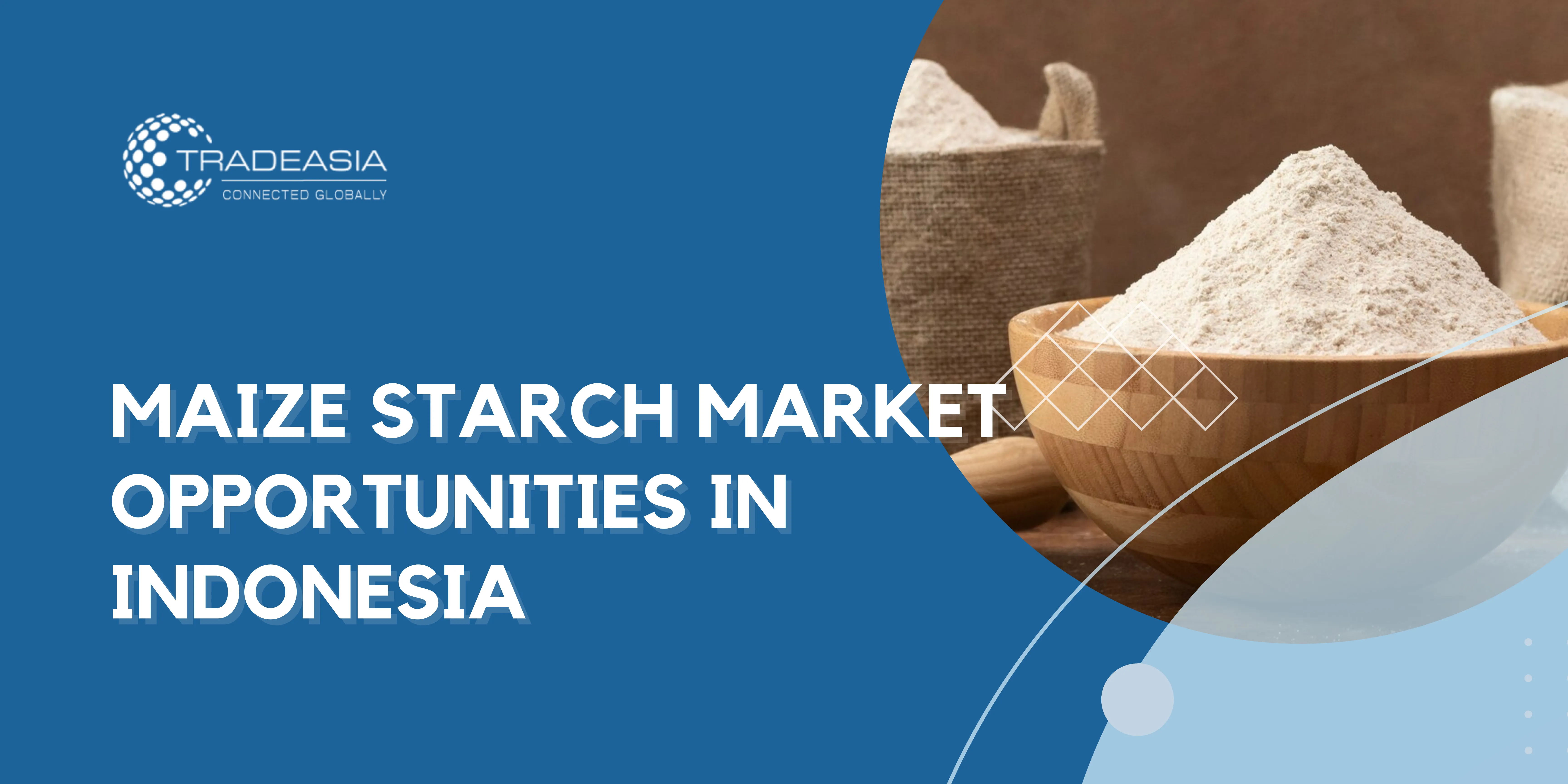Maize starch, also known as corn starch, is a carbohydrate extracted from the endosperm of corn kernels. It serves as a vital raw material in various industries, ranging from food and beverages to pharmaceuticals, textiles, and paper production. Due to its versatility, maize starch is in high demand both domestically and internationally.
Indonesia, as one of the largest economies in Southeast Asia, plays a significant role in the global maize starch trade. The country imports large quantities of maize starch to meet domestic demand while also exporting processed starch products to regional markets. The increasing demand for processed foods, biodegradable materials, and pharmaceutical products is driving the need for high-quality maize starch in Indonesia.
In this article, we will explore Indonesia’s maize starch import and export market, its key players, trade regulations, challenges, and future growth prospects.
The Role of Maize Starch in Various Industries
Maize starch is widely used in multiple industries due to its functional properties, including thickening, stabilizing, binding, and emulsifying. Here’s how different industries utilize maize starch:
Food & Beverage Industry
-
Used as a thickening agent in sauces, soups, gravies, and pudding.
-
Acts as a stabilizer in dairy products, beverages, and bakery items.
-
Used as a key ingredient in glucose syrup and high-fructose corn syrup production.
Textile Industry
Pharmaceutical Industry
Paper Industry
Given its wide range of applications, maize starch is a crucial commodity in Indonesia’s industrial landscape, necessitating both imports and exports.
Indonesia’s Maize Starch Import Market
Despite having a strong agricultural sector, Indonesia relies heavily on maize starch imports due to limited domestic maize production for starch extraction. The primary sources of imported maize starch include:
-
China – The leading supplier, known for producing high-quality modified starch.
-
India – Offers cost-effective maize starch for food and industrial applications.
-
Thailand – Specializes in premium-grade maize starch, widely used in pharmaceuticals and food processing.
Factors Driving Imports
Several factors contribute to the growing import of maize starch in Indonesia:
-
Rising demand from food manufacturers – The rapid growth of Indonesia’s food processing industry has significantly increased the need for high-quality starch.
-
Limited local production capacity – Domestic maize production is primarily allocated for animal feed rather than starch extraction.
-
Quality and consistency requirements – Imported maize starch often meets higher purity and quality standards compared to locally produced alternatives.
Key Export Destinations for Indonesian Maize Starch
Although Indonesia imports a large volume of maize starch, the country also exports significant quantities of processed starch products. The major export destinations include:
-
Malaysia – One of the biggest importers of Indonesian maize starch for use in food and industrial applications.
-
Vietnam – Utilizes Indonesian maize starch in textile manufacturing and paper production.
-
United Arab Emirates (UAE) – Imports maize starch for pharmaceutical and food processing industries.
Factors Driving Exports
-
Competitive pricing – Indonesia offers competitive maize starch prices, making it attractive to international buyers.
-
Rising demand for modified starch – Many industries require modified starch for specific applications, creating new export opportunities.
-
Government incentives – Export-friendly policies and trade agreements encourage starch exports.
Government Policies & Trade Regulations
Indonesia’s maize starch trade is governed by various regulations to ensure quality and fair market practices. Key policies include:
-
Import tariffs and duties – Indonesia imposes specific import duties on maize starch based on trade agreements with other countries.
-
National quality standards (SNI) – Imported and exported maize starch must comply with the Indonesian National Standard (SNI).
-
Trade agreements – Agreements such as the ASEAN Free Trade Agreement (AFTA) help lower tariffs on starch imports and exports.
Challenges in the Maize Starch Trade
Despite strong market demand, Indonesia’s maize starch industry faces several challenges:
Supply Chain Disruptions: Global supply chain issues, including transportation delays and raw material shortages, have impacted the availability of maize starch.
Price Volatility: The fluctuating global price of corn affects maize starch costs, impacting both importers and exporters.
Competition from Alternative Starches: Tapioca starch, which is widely available in Indonesia, competes with maize starch in several industries, reducing market share for corn starch suppliers.
Future Market Trends and Opportunities
Despite existing challenges, the maize starch trade in Indonesia presents numerous opportunities for growth:
Rising Demand for Organic & Non-GMO Starch: The increasing consumer preference for organic and non-GMO ingredients is driving demand for premium maize starch.
Growth in Plant-Based Food Industry: As plant-based diets become more popular, maize starch plays a key role in the development of meat alternatives and dairy-free products.
Innovations in Modified Starch Technology: Advancements in modified starch processing are opening new markets, such as biodegradable plastics and specialty pharmaceuticals.
Expansion of Export Markets: With strategic partnerships and trade agreements, Indonesia can tap into new export markets in Europe and North America.
Conclusion
Indonesia’s maize starch import and export market continues to evolve, driven by the growing demand for starch in various industries. While imports fill the gap in domestic production, exports provide opportunities for Indonesian suppliers to expand globally. With increasing industrial applications, advancements in starch technology, and supportive government policies, the maize starch market in Indonesia is poised for significant growth.
Businesses looking to invest in this sector should stay updated on trade trends, pricing dynamics, and regulatory developments. As industries continue to innovate and expand, maize starch remains a critical component of Indonesia’s economic growth.
For further details on maize starch products and industry applications, visit:
? Maize Starch Powder
? Food & Beverage Industry

Leave a Comment